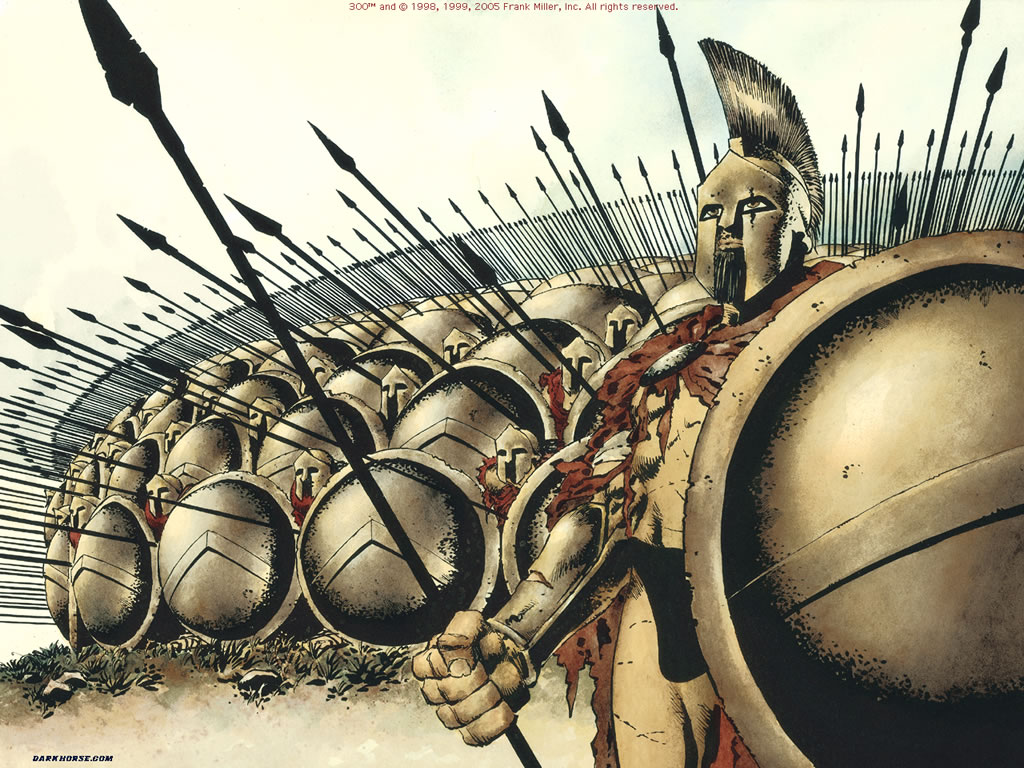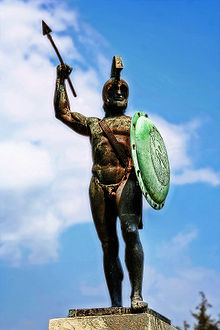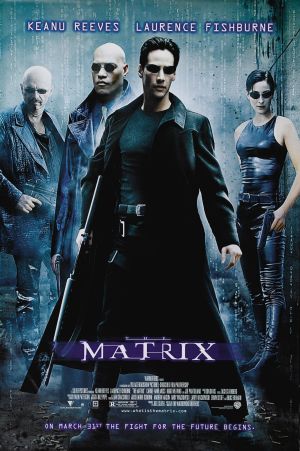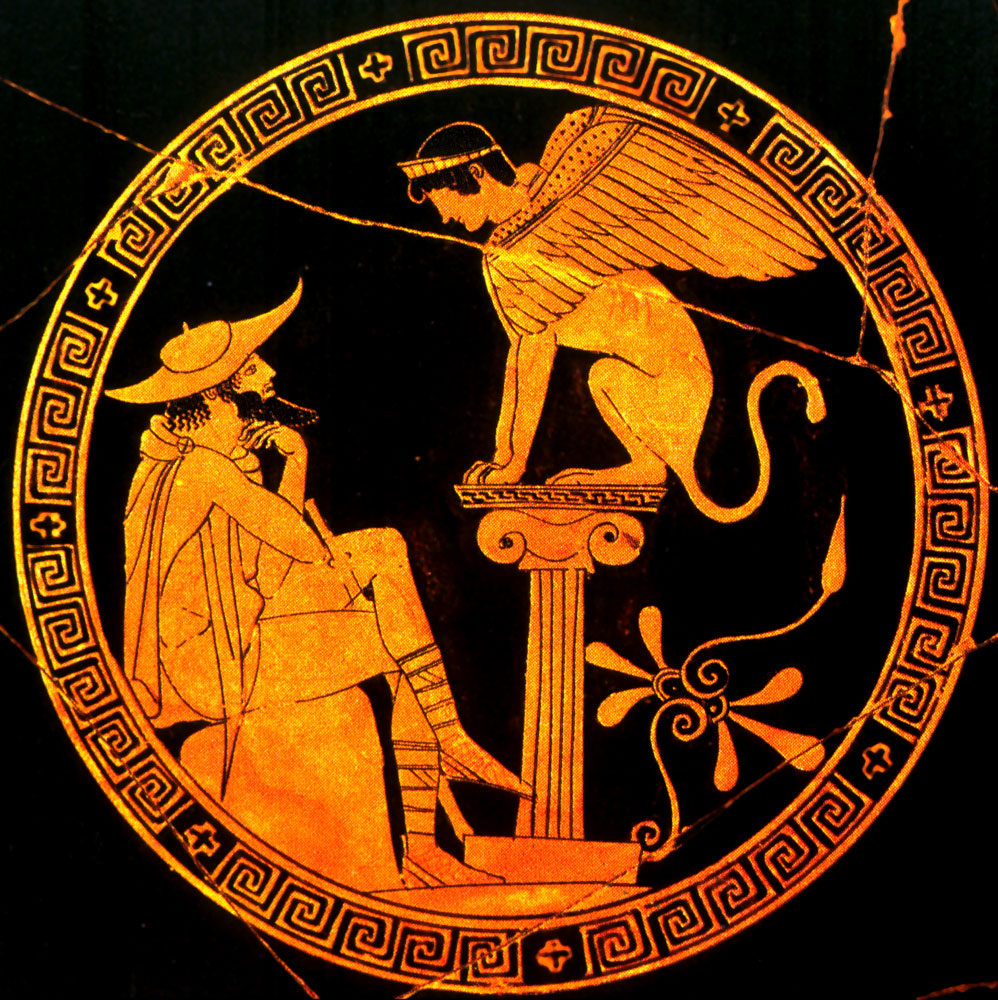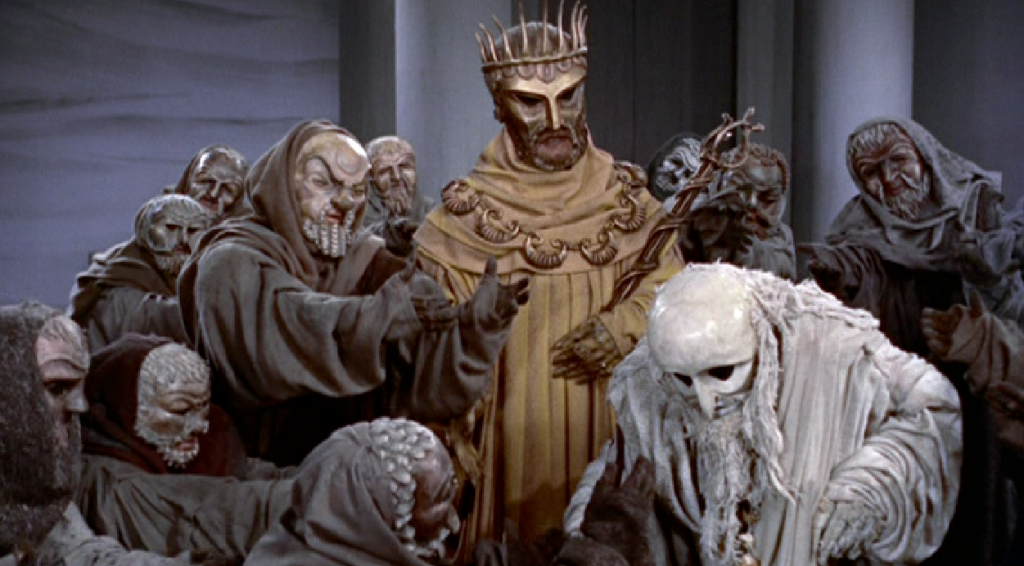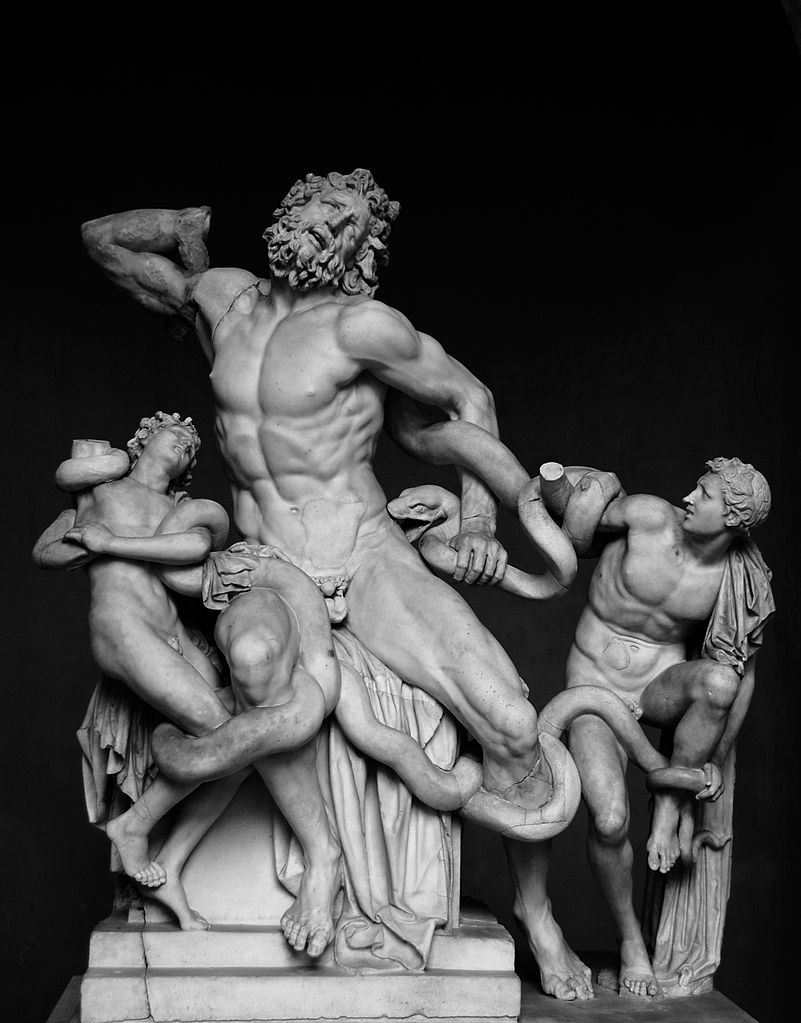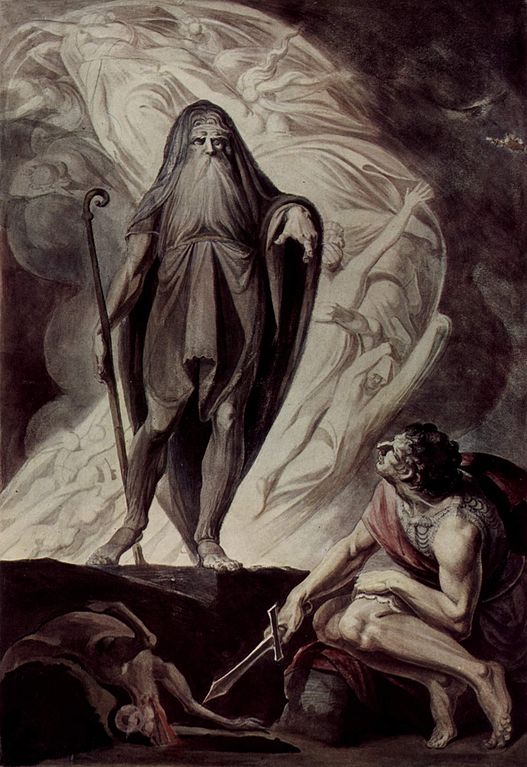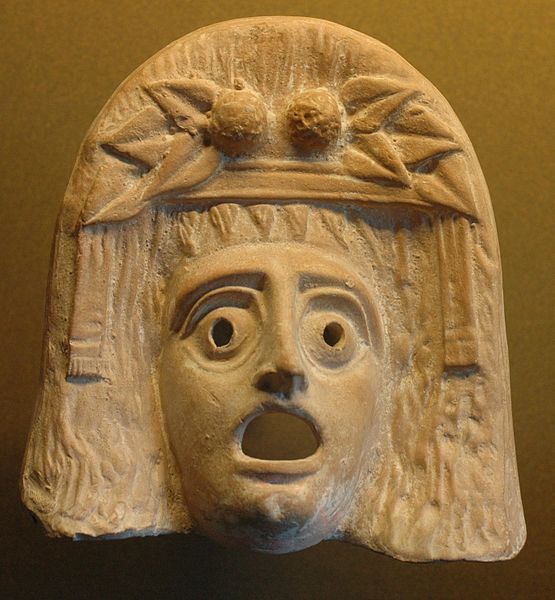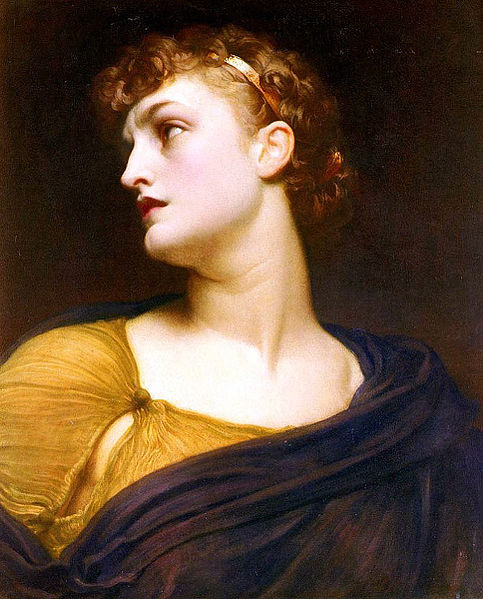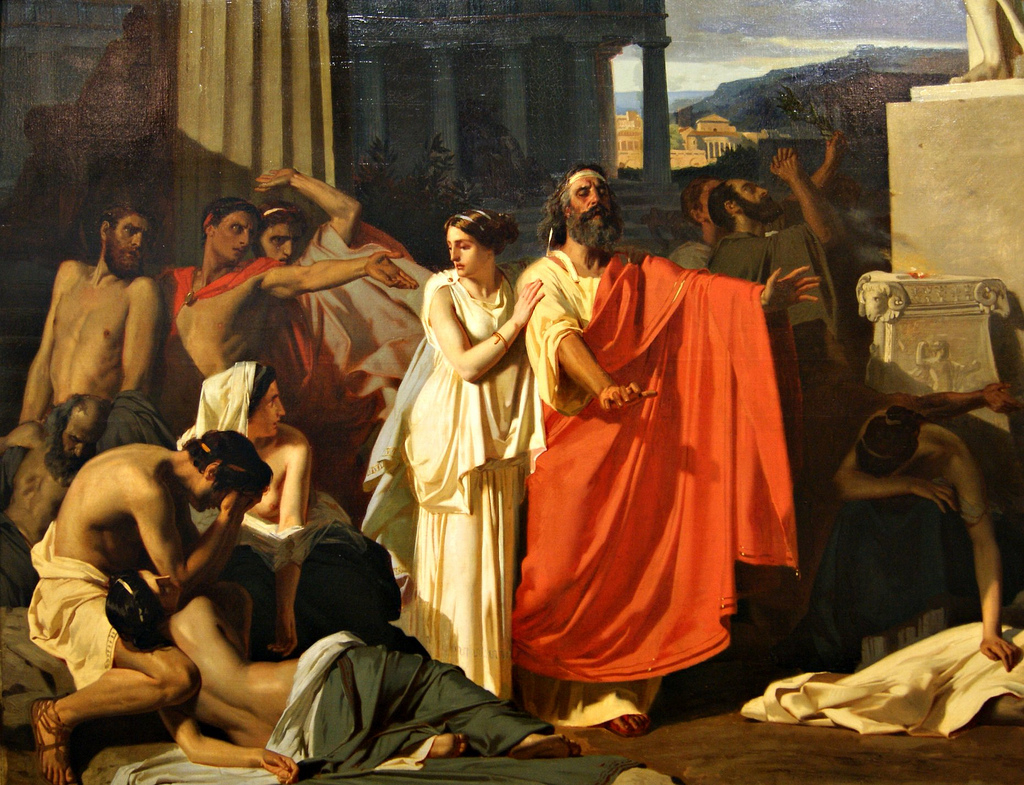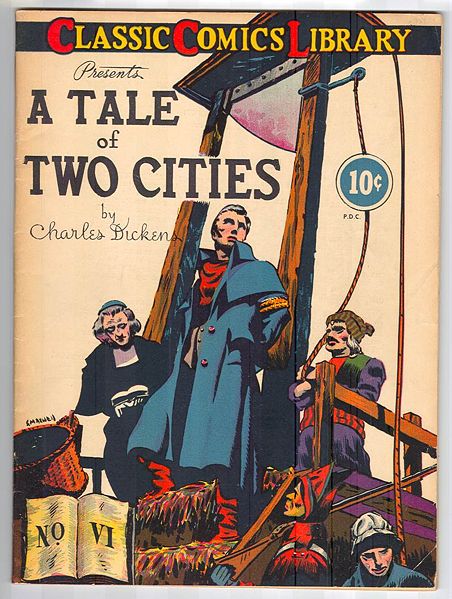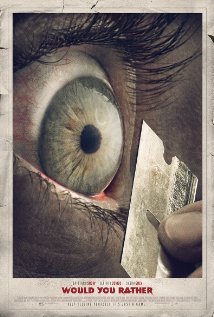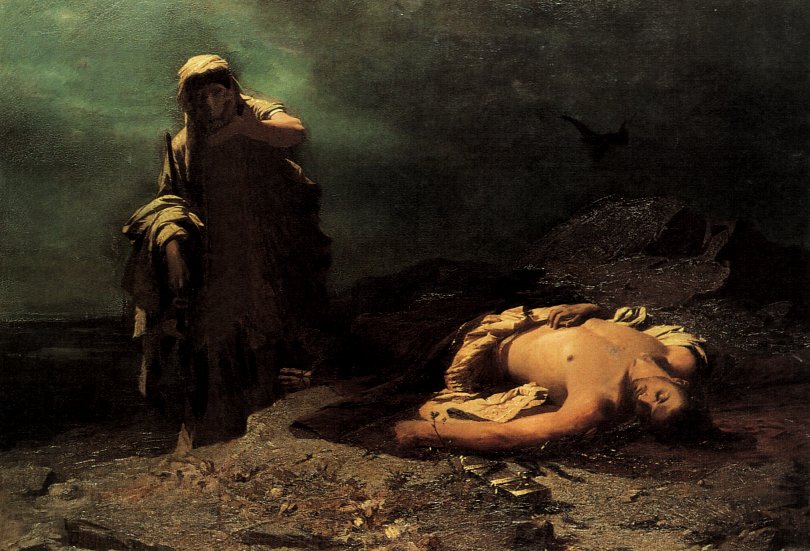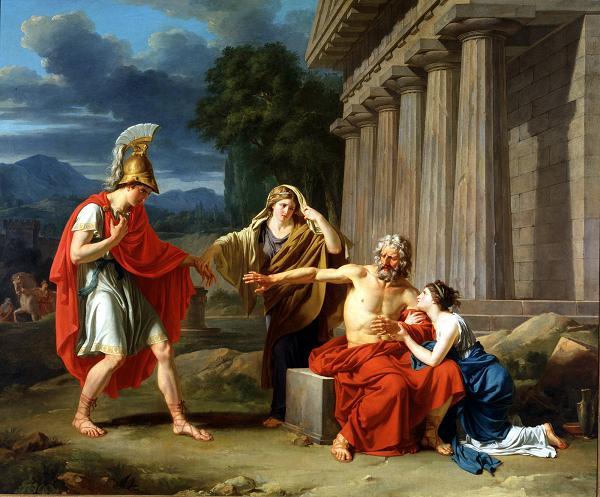I am writing this because it feels like I should, because some things need to be said, because in spite of it all I still believe that there is a good in this world greater than myself.
Apprehensive about what lies ahead, I recall the bravery of King Leonidas and press onward.
As a refresher, King Leonidas is the hero in the film 300 as well as the Frank Miller graphic novel upon which it was based. In spite of the heightened Mortal Kombat style in which finishing moves send the defeated ones into ravines of doom, the story is fairly consistent with recorded history.
300 – Frank Miller, 1998
In the Battle of Thermopylae, King Leonidas and the 300 Spartans, along with a few thousand Greek allies, really were vastly outnumbered by the invading Persian army. The Persian King Xerxes really did demand proskynesis, a form of god-like worship, from those he conquered, and there really was a Greek traitor who showed the Persians a path through the mountainside, which allowed the Persians to flank and decimate the remaining Greek forces.
Refusing to retreat, King Leonidas and his men fought to the death. The Greeks lost the Battle of Thermopylae but only after inflicting substantial damages to Xerxes’s forces. The story of King Leonidas’s heroic last stand spread throughout the land, offering inspiration to the beleaguered Greeks.
Shortly thereafter, the Greeks defeated the Persians at Salamis, a decisive naval battle. Had the Persians prevailed at Salamis, many historians believe that the Greeks would have become a conquered people, instead of a thriving civilization that would develop the democracy, philosophy, and dramatic traditions upon which Western Civilization was built.
There are two reasons why the story of Leonidas is a good introduction to the story of Oedipus. First of all, Greek drama in general and the Oedipus plays in particular developed in the years of peace that followed the Persian defeat, and men like Leonidas made that defeat possible.
Leonidas Monument at Thermopylae – 1955
Secondly, according to the ancient Greek historian Herodotus, King Leonidas was given a choice by the Delphic Oracle: either Sparta would fall or the king would lose his life. The king chose to die, a choice influenced by the Oracle. At least so it would seem, but one can never be too sure when dealing with oracles.
As we will soon see, the Delphic Oracle also plays a significant role in the story of Oedipus Rex. If you haven’t studied ancient Greek history, then the idea of the Oracle might seem a little strange. It sounds like something out of The Matrix. Actually, that’s exactly right. It is something out of The Matrix.
In The Matrix the Oracle calls Neo’s attention to the inscription above her kitchen door. It says “know thyself” in Latin. That is the very inscription at the Delphic Temple of Apollo, where the Oracle resided. (Why couldn’t it be written in Greek, Wachowskis? Why?!) Yeah, it would have been more accurate for me to say that The Matrix is like something out of Greek mythology, like say the story of Oedipus, for example. More on that later.
The Matrix – Warner Bros. 1999
While the Oracle of Delphi plays a part in many Greek myths, Delphi was an actual place in Greece, considered by the ancient Greeks to be the navel of the universe, and leaders like Leonidas, and later Alexander the Great, would travel there in search of divine revelation from the gods, specifically Apollo. Think of a visit to Oracle of Delphi as a mix between a pilgrimage to a sacred site and a search for answers via an Oprah interview.
The myth of Oedipus predates the Greek poet Homer, and there are even passing references to the story in Homer’s Odyssey, but we know the story best from the plays of Sophocles.
Most people have at least heard of Sophocles’s play Oedipus Rex, but Sophocles also wrote Antigone, which tells the story of what happens to the children of Oedipus, and Oedipus at Colonus, which tells the story of what happens to Oedipus before he dies.
Actually, Oedipus Rex is the name of the play in Latin. In Greek it was known as Oedipus Tyrannus, but as Professor Donald Kagan of Yale University explains, the word “tyrant” did not have the same distinctly negative connotation to the Greeks that it does to us. That’s why we’ll stick with the more familiar Latin title, which translates as Oedipus the King.
Oedipus and the Sphinx
The plays were not exactly intended to serve as a trilogy in the way that Aeschylus’s Oresteia was. Sophocles wrote Antigone first, which happens last in the story chronology. He wrote Oedipus Rex a few years later. More than twenty years passed before Sophocles would write Oedipus at Colonus, and he died shortly after he finished writing it.
In spite of the distance in years, the plays do have a certain continuity, and the character arch of Oedipus does not end until Oedipus at Colonus, so to exclude that play from the discussion, as is so often done, is to get an incomplete sense of what the playwright intended. That would be like building complex philosophical arguments about the Harry Potter series by only discussing The Prisoner of Azkaban.
Who knows, perhaps some academic in the distant future will do that very thing, writing extensively about the Dementor complex, in which those affected imagine themselves to be attacked by soul-stealing spirits but are actually experiencing a sublimated wish to destroy the penis.
Until that joyous day, those so inclined can content themselves to read volume after volume about the Oedipus complex, but I wouldn’t recommend it.
To see the play as interpreted through Freud, check out Pier Paolo Passolini’s film Oedipus Rex (1967). The dreamlike qualities of that film make it worth watching, but it does have a heightened sexual awareness that goes beyond ancient Greek sensibilities. For the more classical retelling, watch Tyrone Guthrie’s 1957 version. Everyone in that production wears a mask, which is how historians believe Oedipus Rex was originally performed.
Still from Tyrone Guthrie’s filmed adaption of Oedipus Rex, 1957
Our society’s obsession with the Oedipus complex says more about our society’s distorted worship of sexuality than it does about the intentions of Sophocles. In ancient Greece, a son who had sex with his mother was a profane, unspeakable thing. In a Tarantino film, that profane thing becomes a greeting, an adjective, a gesture of respect.
You know Tarantino’s profanity of choice, I’m sure, so I’m not going to say it here. That’s not because I’m afraid of a word or because I don’t ever swear. I do swear on occasion, but I also aim for a certain level of civility when possible.
There are two more background details we should flesh out before diving into the meat of the story. In mythology, the god Apollo was associated with many things like medicine, music, poetry, and prophecy, but in the Oedipus plays of Sophocles, Apollo is associated first and foremost with light. To give but one example, here’s how the Chorus describes Apollo at the beginning of Oedipus Rex: “Phoibos Apollo, stretch the sun’s bowstring, that golden cord, until it sing for us, flashing arrows in heaven.” This is critical to remember, because Sophocles communicates Oedipus’s feelings toward the gods in terms of light and dark imagery.
Lastly, Oedipus is the king of Thebes and a descendant of Cadmus, and ancient Greek audiences were well aware that Thebes was a city with an unsettling origin story and that the lineage of Cadmus was cursed.
Cadmus Sowing the Dragon’s Teeth – Maxfield Parrish, 1908
According to mythology, the story of Thebes begins when Cadmus’s men encounter a giant cave-dwelling snake. Since the snake is the son of Ares, god of war, it is not terribly surprising that the snake kills all of Cadmus’s men. In retaliation, Cadmus kills the snake and plants its teeth into the ground, from which grow ferocious warriors who fight each other to the death until only five warriors remain. With these five, Cadmus founds Thebes. Angry about the death of his son, Ares curses Cadmus and his descendants.
For a modern day equivalent, imagine a city founded from the blood of Lord Voldemort’s snake, Nagini. That’s not exactly an auspicious start, and that origin would linger in the back of our minds, no matter how charming and benevolent its contemporary leaders might seem. So it was with Thebes, but that’s enough background information for now.
Laocoön and His Sons – 25 BC.
(Professor Jennifer Tobin argues that this sculpture embodies the Hellenistic Period’s movement away from idealization and toward a more honest examination of what it means to be human. Sophocles paved the way for that aesthetic with his plays.)
Unless I mention otherwise, the passages I quote will come from Robert Fitzegerald’s translations of the plays. While there are newer, jazzier translations, the Robert Fitzgerald translations are still considered the classic ones, and a classic choice is the preferred choice here on the nsavides blog.
When Oedipus first appears in Oedipus Rex, he introduces himself to the supplicants seeking his aid by describing himself as, “I, Oedipus, who bear the famous name.” Put into the parlance of our times, it would sound something like this: “You’ve read the tabloids. You’ve seen the posters. Now experience the magic in person! Behold the celebrity who graces you with his presence.”
Here’s how the Priest responds to Oedipus’s entrance, “You are not one of the immortal gods, we know; yet we have come to you to make our prayer as to the man surest in mortal ways and wisest in the ways of God.” That sounds a little bit like deification, but that is just so strange and very different from how we treat celebrities today, right? Already the story seems implausible right off the bat, but let’s stick with it just to see where it goes.
It turns out the people of Thebes are dying from a plague, and they want Oedipus to do something about it. Being the consummate politician, Oedipus reassures his people by saying, “so, with the help of God, we shall be saved— or else indeed we are lost.”
Look at that. Oedipus sounds so pious when he is speaking in public. How nice. But is he really a pious guy? Well, let’s look at his later conversation with Tiresias, the blind seer and prophet of Apollo.
Tiresias is at first hesitant to answer Oedipus’s questions, but Oedipus persists. Pressed until his resistance collapses, Tiresias tells Oedipus, “you yourself are the pollution of this country.” That’s not exactly what Oedipus wants to hear. He responds by accusing Tiresias of “mystic mummery” and calls his revelations “damned abracadabra.”
Tiresias appears to Ulysses during the sacrificing – Henry Fusell, 1780-1785
Then Oedipus brings up the Sphinx that troubled Thebes before Oedipus came to town and asks why Tiresias did nothing to remove that threat from the city: “Your birds—what good were they? or the gods for the matter of that? But I came by, Oedipus, the simple man, who knows nothing—I thought it out for myself, no birds helped me!”
The birds that Oedipus references were used as a kind of divination back then. It’s not unlike looking to the stars for signs, as did the wise men who visited Christ, or as some of us do now when we check our horoscopes. Mock that tendency if you wish, but throughout history mankind has sought to understand the will of God through all kinds of discernible patterns.
Regardless of our contemporary thoughts on the matter, the ancient Greeks took the art of interpreting omens seriously, and Oedipus has just mocked that tradition while suggesting that the respected prophet Tiresias is nothing more than a kooky Professor Trelawney type.
Hmm. All of a sudden, Oedipus doesn’t sound so pious. Later the Chorus reinforces our growing perception that Oedipus’s lack of piety might be an issue: “Though fools will honor impious men, in their cities no tragic poet sings.”
Mask of Dionysus – 2nd century BC
Not everyone agrees that Oedipus has a fatal flaw. Harold Bloom introduces a book on critical interpretations about Oedipus by saying, “Whether there is a ‘tragic flaw,’ a hamartia, in King Oedipus is uncertain, though I doubt it, as he is hardly a figure who shoots wide of the mark.” Oh, Bloomie! First you challenge my esteem for Harry Potter, and now this! Can we not agree on anything?!
I need a moment to compose myself. OK. That will do. So, Oedipus…
As the story progresses we learn that a drunk once told young Oedipus that he was not truly the son of Corinth’s king and queen. Whether driven by a desire to reaffirm his nobility or to know the truth, Oedipus visits the Oracle of Delphi and inquires about his lineage. Instead of answering his question directly, the Oracle tells him that he will kill his father and marry his own mother.
Determined to escape this fate, Oedipus refuses to return to Corinth. At a crossroad he meets King Laius of Thebes and his kingly procession. Oedipus is alone, but he insists that he has the right of way. When King Laius and his men refuse to yield, Oedipus gets angry and kills the king and all but one in the king’s procession.
As it turns out, Laius, king of Thebes, was Oedipus’s actual father. The king of Corinth had merely adopted Oedipus at a young age. By killing Laius, Oedipus turns Jocasta, Laius’s wife and Oedipus’s mother, into a widow, paving the way for the Oracle’s prophecy to be fulfilled.
When Oedipus comes into Thebes and solves the riddle of the Sphinx, one that no one else could solve, the Sphinx kills herself in dismay. So dramatic, that Sphinx.
(Fun fact for those of you not named Harold Bloom: in Goblet of Fire, Harry Potter is also presented with a riddle from the Sphinx. Does this mean that the Sphinx actually faked her death back in the days of ancient Greece so as to avoid a prolonged, potentially career-damaging association with Oedipus? The historical record is not clear on this point.)
Anyway, the people of Thebes see the Sphinx’s (supposed) demise as a favorable sign. They offer Oedipus the kingdom and Jocasta as rewards, both of which he accepts.
Oedipus and the Sphinx – François Xavier Fabre, ca. 1806-1808
By trying to defy the Oracle’s prophecy, Oedipus made it come true. From this we get the two central questions in the Oedipus story. The most commonly discussed one is the fate and free will question: Did Oedipus ever really have a choice, or was his unfortunate situation predestined?
The second question is whether the hand of God is a benevolent or malevolent influence in the lives of men and women. Sophocles wrestles with both questions all the way through to the conclusion of Oedipus at Colonus.
To evaluate the Oedipus’s plight, let’s take a closer look at what happened at the crossroads.
Oedipus was by himself when he saw the king’s procession, but he still believed that he had the right of way. Suppose you were in your car and saw the President’s motorcade approach. Even if you were someone very important like a CEO, wouldn’t it be reasonable to assume that the President has the right of way, due to the authority of his office?
Oedipus didn’t think so. He was just a prince at the time, travelling through a foreign land with scarcely any proof of his nobility, but he still refused to yield the right of way to King Laius. Not only did he refuse to yield, but he killed almost everyone in the royal procession over what was essentially a non-issue, a blotch to his ego. Again this is very much unlike how celebrities act in today’s world, and so, dear reader, let us make a monumental effort to trudge onward by suspending all disbelief.
Perhaps Oedipus’s reaction was partly due to the curse from the god or war. But then again, if Oedipus had never visited the Oracle wouldn’t he have been better off? I’m not so sure.
Remember, inscribed on the entrance to the Oracle is the phrase, “know thyself.” Above all else, the Oracle is there to help her visitors attain self knowledge. For more insights into this conundrum, let’s consult the Oracle.
We don’t have the budget for an actual visit, so let’s just quote the Oracle from The Matrix Reloaded. She tells Neo, “you didn’t come here to make the choice. You’ve already made it. You’re here to try to understand why you made it. I thought you’d have figured that out by now.” OK, well that clears that up.
The Oracle from The Matrix – Warner Bros. 1999
Notably, the one thing that Oedipus did not do when he heard the Oracle’s ominous prophecy was to ask with humility how it could be avoided. Instead, he decided to defy the prophesy on his own. If you learn nothing else from this post, remember this part: Should you ever meet a verified oracle, say on Twitter or something, do not try to defy the oracle’s prophecy. The literature at large suggests that it does not go well for those who do.
Doubt my words if you must, but if you wake up and discover that you’ve become a Tarantino, don’t say I didn’t warn you. Speaking of Tarantino, I hear that he goes around punching people when they say things that displease him.
On the podcast “Crossing the 180,” the photographer Miller Mobley tells a story of how Tarantino asked to see his DGA (Director’s Guild of America) card when Mobley tried to give Tarantino some posing suggestions for the photo shoot that Mobley was running.
More than likely, a photographer would not have a DGA card, since most photographers do not also make a living by directing motion pictures. That was Tarantino’s way of saying that Tarantino does not take direction from photographers. Oh man, does it get more awesome than that?! But hey, the guy’s got a film nominated for a best picture, so bow down and worship. Or something.
Let’s get back to Oedipus though. He does have some issues, but he also is not lacking in admirable qualities. When his people lament of their sufferings, Oedipus appears to share their sorrows. He vows to find the source of the plague and tells his people, “I know that you are deathly sick; and yet, sick as you are, not one is as sick as I.”
When he speaks that line, he is speaking as a statesman who hurts to see his people hurt, but that line takes on a whole new meaning by the end of the play when we learn that Oedipus’s profane marriage to his mother is the source of the plague. Oh those Greeks, and their double meanings! Sophocles is a master of double entendre, and he uses that technique throughout his plays.
Antigone – Frederic Leighton, 1882
In the play Antigone, Sophocles has Creon anticipate his later demise in a similar manner. Creon tells his subjects, “and as for the man who sets private friendship above the public welfare—I have no use for him, either.” At the beginning, Creon says that line as a warning to those who might defy the state. By the end of the play, that line condemns him as he mourns for his dead son.
Indeed there are several parallels between Oedipus and Creon. Both men start their respective plays as confident leaders, receive unwanted messages from Tiresias, act with impiety, and lose family members by the end of the play as a result of their actions. Oedipus though, shows a determined inclination to discover the truth, regardless of what it might cost, whereas Creon is simply concerned with how to effectively manage the kingdom. Compared with Creon, Oedipus seems the more admirable, but he suffers a far worse fate, at least in Oedipus Rex, which might explain why Sophocles felt compelled to revisit the story of Oedipus before dying.
Throughout Oedipus Rex, several characters try to persuade Oedipus to abandon his search for truth, but he persists even when he begins to suspect that he might actually be the pollution that plagues his city, as Tiresias had claimed. Oedipus could have continued to live in comfort while his people suffered, but that would have been the easy way out. Instead Oedipus continues his search until he discovers that his city is dying because “I am that evil man.” Most people never get anywhere close to that realization, although it is usually no less true.
It wouldn’t be fair of me to write this post without acknowledging my own shortcomings. There are many. Instead of going through a laundry list, let me share a quick story: When I was younger I would approach a group effort with the mentality that I was so smart and that everyone else would soon realize how smart I was and let me make all the important decisions.
At the time, I couldn’t figure out why those endeavors would dissipate into chaos and apathy, but I was poisoning the group’s potential with my outlook. I still consider myself an intelligent person, but now instead of focusing on myself, I aim to bring out the best in everyone involved and to encourage a healthy collaborative spirit. My group efforts have become more fruitful with that change in perspective.
I’m still not a perfect person, but at least now I am open to the possibility that I might be part of the problem. Fortunately, I’m not the only one willing to consider that possibility.
When I heard that Stephen King had written an essay about guns after the Sandy Hook massacre, I was a little nervous. I respect Stephen King as a writer, and a number of his books have been meaningful to me. If not for the overindulgence of profanity and graphic sex in his writing, I would not hesitate to include Stephen King in a list of the 20th century’s greatest writers, but I was worried that his gun essay would be just another liberal diatribe, full of hot air and hypocrisy.
To my surprise, Stephen King begins his essay by acknowledging that a book he wrote under a pen name when younger might have been an “accelerant” in recent school shootings. Disturbed to learn that troubled kids had mimicked scenarios in that book, King asked the publisher to take it off the market.
A celebrity who acts like a human being: How unexpected, how refreshing. My political leanings are a little right of center and Stephen King is a little left of center, and I consider his verbal assaults on Glenn Beck to be childish, malicious, and unfair, but if Stephen King has the courage to look in the mirror before pointing fingers, then I will listen to what he has to say.
(As to Stephen King’s animosity toward Glenn Beck, it is worth mentioning that both men have more in common than they might care to admit. Both were, by their own admission, self-destructive alcoholics who are now committed to remaining sober. Both are also prolific writers who use their creative abilities to campaign for a better society based on how they interpret the world at large. Interesting isn’t it, how people can be the most vicious to others who are all too similar in all the wrong ways.)
That being said, guess who does not share Stephen King’s self-examining inclination? That’s right. Quentin Tarantino.
Many of you have probably seen this video interview where Tarantino refuses to answer a question about whether there is a correlation between consuming onscreen violence and acting out in violent ways, but there is something peculiar about the video that is worth further exploration: http://bcove.me/sfugj0ba
Tarantino responds to Krishnan Guru-Murthy’s question by saying “I’m not your slave, and you’re not my master.” Now, I noticed something when I watched that, but I didn’t want to jump to any premature conclusions, so I did some tests, and my suspicions were confirmed. Thank you, Photoshop.
Relative to Tarantino, at least, the interviewer is in fact a person of darker color. Since it is Black History Month, I’ve got to ask, is it Weinstein Company policy to handle difficult questions by suggesting that the people of color who ask those questions are slave masters, or is that just another Tarantino thing?
As to Tarantino’s nervousness in answering the question, perhaps he has good reason. After all, the Columbine shooters were big fans of the Tarantino penned film Natural Born Killers. They watched movie repeatedly before going on their 4/20 massacre and called the shooting day NBK day in their journals, named after the film’s acronym.
Maybe that’s not recent enough though, so how about this CNN discussion:
http://www.youtube.com/watch?v=sba4yEimEV8
Here the discussion focuses around Chris Dorner, the guy who went on a rampage just a few weeks ago, shooting at innocent police officers and their families. One of the commentators, Professor Marc Lamont Hill, says, “It’s almost like watching Django Unchained in real life. It’s kind of exciting.” Yes, it is so exciting when the crazies kill innocent people, isn’t it? It’s just like watching a movie! But why did Hill specifically mention Django Unchained and not say The Nutty Professor, Bridge on the River Kwai, or Medea’s Family Reunion?
Well I don’t know. Might it have something to do with the ending of Django Unchained where Jamie Foxx blows away everyone with a certain panache while the soundtrack suggests that the killer is doing God’s work? Maybe Hill was actually thinking about the film’s message, which seems to be something like, there is injustice in the world, and the best way to deal with it is to go on a bloody shooting spree and kill everyone.
I’ll give credit where credit is due, though. Tarantino is a consummate stylist. His films have exceptional visual flair and crisp dialogue, but I find the substance of his films to be unfulfilling at best and pestilent at worst.
Even so, Tarantino doesn’t say one thing and then act in a completely contradictory manner. Tarantino may be many things, but a Hollywood phony he is not. The same cannot be said about guys like Kevin Williamson. In my recent James Dean post, I pointed out how ironic it was that Kevin Williamson, creator of the Scream franchise, would say this on Twitter, in response to the Sandy Hook shooting: “We need gun control. Stop defending your right to bear arms. You’re stupid,” but then I mentioned that I was willing to give him the benefit of the doubt because I liked his show Dawson’s Creek. I wrote that before reading this article:
http://www.hollywoodreporter.com/live-feed/creator-kevin-williamson-staying-course-409812
There’s a lot of jargony phrases and industry terms in there, so let me see if I can translate Williamson’s comments for the layperson. I’m not an expert translator, but I think this is about right: “Wait, you think I’m going to give up a lucrative gig just because there was another shooting? That’s a joke, right? Turn down the violence? Are you insane? Yes, my show is about a serial killer who inspires an army of serial-killer followers with his actions—HELLO, the show is called FOLLOWER for a reason!—but I don’t see how this relates in any way to the current shooting epidemic, and besides I’ve got mouths to feed, bro. Lots of mouths. I don’t even know how many mouths there are, because there are so many of them, but of course my prayers go out to all the victims.”

Kevin Williamson’s house, which he listed at $3.95 million in 2012 according to realtor.com
And so, without further ado, I would like to award Kevin Williamson the Douchie, the first award ever offered on the nsavides blog. The Douchie is given to men and women in the entertainment industry who go above and beyond in establishing themselves as world-class Hollywood Phonies. Congratulations to Kevin Williamson for being the first recipient of this distinguished dishonor!
At the time of this writing, it remains unclear if Kevin Williamson will be available to accept this award, but he will be notified.
Kevin Williamson tells us that we are stupid for believing in the Second Amendment. Tolstoy tells us that “Everyone thinks of changing the world. No one thinks of changing himself.” I don’t know about you, but I’d rather listen to Tolstoy. It’s easy to blame others for the problems at large, but much harder to consider, as Oedipus did, that we might be the very pollution that plagues our cities.
When Oedipus discovers the truth, he takes Jocasta’s golden broach and stabs his eyes. Then he orders himself exiled. He has finally come to a point of a self knowledge and takes action to purge his city of the pestilence he has brought upon it, but by blinding himself, Oedipus is also acting in defiance of Apollo, god of light. Shortly before he blinds himself, Oedipus says “O Light may I look on you for the last time!” Note that “light” is capitalized in the text.
When the Chorus asks Oedipus, “What god was it drove you to rake black night across your eyes?” Oedipus responds by saying “Apollo. Apollo. Dear children, the god was Apollo. He brought my sick, sick fate upon me.” Ironically Oedipus’s act of defiance makes him more like Apollo’s prophet, the blind seer blind Tiresias.
Oedipus – Ernest Hillemacher, 1843
It’s as if Oedipus is saying, “the only reason I am here is because I sought you out, Apollo. I consulted your Oracle. I tried to do right by my people, and you still brought me here. I would have been better off if I had never paid you any regard.” But without self knowledge, would he have been better off? That’s the real question, isn’t it?
Earlier, Oedipus thought of himself as the lucky one who survived, who solved the riddle of the Sphinx when no one else could. Before learning the truth, Oedipus declares, “but I am a child of Luck; I can not be dishonored. Luck is my mother; the passing months, my brothers, have seen me rich and poor. If this is so, how could I wish that I were someone else?” But by the end of the play, Oedipus has come to realize that he might not have been as lucky as he first thought.
“Ah, what net has God been weaving for me?” he wonders. Were all those seemingly fortuitous moments there just to ruin Oedipus, to turn him into a monster similar to how circumstances mold Walter White in Breaking Bad? That is more or less what Oedipus concludes by the end of the play as he wonders, “Ah, if I was created so, born to this fate, who could deny the savagery of God?” These are not easy questions to answer, so Sophocles deserves credit for having the courage to ask them.
Breaking Bad Season 5 promo – AMC, 2012
Sophocles ends Oedipus Rex on a note of ambiguity, when the Choragos, the leader of choir, delivers the closing speech: “Let every man in mankind’s frailty consider his last day; and let none presume on his good fortune until he find life, at his death, a memory without pain.”
That ending, while poetic, does not seem to me a satisfactory conclusion to the questions raised in the play. My guess is that Sophocles felt the same way, and my argument for that is Oedipus at Colonus.
Wait a minute. There appears to be a breaking (fictional) development that might impact our discussion. Kevin Williamson has just tweeted about the Constitution once again. He writes “Time to act is now. Stop defending your freedom of religion. Scientology is for everyone, assholes.” The reason behind this new outburst remains unclear, but we will have more details for you as the story unfolds.
Not sure what that’s about, but I’m sorry about the interruption, folks. Anyway, there is a certain symmetry to Oedipus at Colonus that beautifully counterbalances, we might even say undoes, Oedipus Rex. Oedipus Rex tells the story of a powerful, arrogant, go-it-alone man whose actions bring a plague upon his city and cause him to be exiled from cursed Thebes. With Oedipus at Colonus, we see a humbled blind man, dependent on his daughter, who comes to Colonus (the birthplace of Sophocles) so as to bestow a blessing upon Athens, the cultural center of Greek civilization.
It’s the Tale of Two Cities, ladies and gentlemen, and I don’t mean just Thebes and Athens. The Charles Dickens’s novel is an appropriate companion piece. Without going too deep down the rabbit hole, consider how Tale of Two Cities begins and how it ends.
A Tale of Two Cities – Classic Comics, 1942
Speaking of rabbit holes, the Matrix trilogy does share more than just oracles with the plays that compose the Oedipus Cycle: The main character chooses to discover the truth of his wretched state and in so doing becomes exiled from his home, suffers much, becomes blind, and dies a hero. The entire Oedipus Cycle deals with the fate/free will dilemma as does the Matrix trilogy, and the play Antigone anticipates the fight-the-power! ethos in the Matrix films. Niobe, one of the important characters in the later Matrix films, was also a noted character in Greek mythology who happened to be married to an early founder of Thebes.
How about that?
You know, I used to defend The Matrix Reloaded and The Matrix Revolutions as being meaningful additions to the story, but a certain friend callously dismissed my insights by suggesting that the only reason I would do so was because I must be one of those guys who wears sunglasses indoors and has a Matrix screensaver running on all my computers. Well, for your information I do NOT have a Matrix screensaver on my computers, but I do enjoy this animated gif:
Whoa. Eight hours have pasted since I wrote that last paragraph, but it’s just so beautiful! OK, well maybe it wasn’t exactly 8 hours, but if I’m ever bored, I’ll know where to go. (Thanks for the encouragement, “friend.”)
In preparation for this post, I went back and revisited the Matrix films thinking that they might relate. The films weren’t as enjoyable this time around, I have to admit. The first Matrix begins with a bunch of police officers getting killed. Toward the end of the film, security officers getting blown apart, with the aid of assault weapons, and Neo’s black trench-coat getup is too reminiscent of all the recent school shooters for the sequence to feel as fun as it first did.
The Matrix Reloaded also begins with security guards getting shot, so the recurring violence against authority seems like a deliberate choice, consistent with Neo’s closing speech in The Matrix: “I’m going to show them a world without you, a world without rules and controls, without borders or boundaries, a world where anything is possible.”
You know, I’m glad that there are some rules in place, not because I am trying to oppress others but because some rules allow for a civilization to grow and prosper. Thou shalt not kill, particularly innocent children and police officers who protect the public, seems like a reasonable rule, for starters, and while the Wachowskis might rage against the machine, that machine, with its rules and boundaries, still allows them and their collaborators to recoup the enormous investments of time and money that went into developing their groundbreaking series.
Then there is the occasionally heavy-handed political commentary. When Agent Smith meets with Cypher, who is there to betray Morpheus, Mr. Smith calls him Mr. Reagan and asks if they have a deal. Cypher responds, “I don’t want to remember nothing. Nothing! You understand? And I want to be rich. Someone important. Like an actor.”
Hmm. Cypher’s name in the matrix is Mr. Reagan, and he wants to be an actor. That could be anyone really! Maybe it’s a veiled reference to a powerful shogun in feudal Japan who was involved in Kabuki theater, maybe a Shakespearean actor in Elizabethan England who played a part in King Lear. We just don’t know! Yeah …
(Reducing the former actor and President, Ronald Reagan, to a selfish sellout is a cheap shot, even if you don’t like his politics. Consider this excerpt of a letter that Reagan wrote to his son, a letter which can be found in its entirety at BrainPickings.org and in the book Reagan: A Life in Letters:
“Some men feel their masculinity can only be proven if they play out in their own life all the locker-room stories, smugly confident that what a wife doesn’t know won’t hurt her. The truth is, somehow, way down inside, without her ever finding lipstick on the collar or catching a man in the flimsy excuse of where he was till three A.M., a wife does know, and with that knowing, some of the magic of this relationship disappears. There are more men griping about marriage who kicked the whole thing away themselves than there can ever be wives deserving of blame. There is an old law of physics that you can only get out of a thing as much as you put in it. The man who puts into the marriage only half of what he owns will get that out. Sure, there will be moments when you will see someone or think back to an earlier time and you will be challenged to see if you can still make the grade, but let me tell you how really great is the challenge of proving your masculinity and charm with one woman for the rest of your life. Any man can find a twerp here and there who will go along with cheating, and it doesn’t take all that much manhood. It does take quite a man to remain attractive and to be loved by a woman who has heard him snore, seen him unshaven, tended him while he was sick and washed his dirty underwear. Do that and keep her still feeling a warm glow and you will know some very beautiful music. If you truly love a girl, you shouldn’t ever want her to feel, when she sees you greet a secretary or a girl you both know, that humiliation of wondering if she was someone who caused you to be late coming home, nor should you want any other woman to be able to meet your wife and know she was smiling behind her eyes as she looked at her, the woman you love, remembering this was the woman you rejected even momentarily for her favors.” Does that sound like the advice of a sellout to you?)
Also, in The Matrix Reloaded when the Architect discusses humanity’s mistakes, George W. Bush’s face appears next to images of Hitler and other brutal dictators. Ah yes. Hitler tried to eradicate the Jewish people from the face of the earth. Stalin and Chairman Mao killed millions of their own people, but that George W. was quite a devil. While facing an unprecedented terrorist attack, he increased government surveillance and led a war against an Iraqi dictator who would routinely torture and kill his own people, and President Bush didn’t even respond to the unexpected devastation of Hurricane Katrina all that fast. Let us burn his effigy!
Much of The Matrix is thoughtful and inventive, but unfortunately the political discourse sometimes has all the sophistication of a myspace blogger who cites John Stewart and Michael Moore as influential historians. Contrary to what some might think, it is possible for liberal-leaning Hollywood to produce a film with an evenhanded political outlook. Steven Spielberg’s film Lincoln is an excellent example of that.
I didn’t write all of that as someone who hates the Matrix series. It used to be one of my favorite film trilogies, and there are still many things about it that I admire, including the animated gifs that the film has spawned, which as we’ve already discussed, can offer countless hours of enjoyment. But, since I’ve been discussing the negative influence of some films, it seems only fair to critique even the films that I like.
The Matrix Reloaded poster – Warner Bros. 2003
I’m not saying that the Matrix trilogy has no redeeming value, just that it has some less-than-ideal parts. The goal is not to get challenging art banned but to get artists to be more mindful about how their work might affect society.
School shootings and other atrocities aren’t going to fade away until we stop turning a blind eye to problems just because those problems might originate with dazzling films or charming celebrities.
Speaking of turning a blind eye, no reporter I have read thus far has asked Brittany Snow, the celebrity behind the Love is Louder movement, how her films embody, even remotely, the ethic that she has turned into a small merchandising phenomenon. Take for example her latest offering to cinema audiences, the torture-porn flick Would You Rather, a film she executive produced and stars in.
Is there a hidden heart in the film’s poster, because I just don’t see it.
Would You Rather poster – Periscope Entertainment, 2012
I’ve struggled to write honestly and from the heart about the things that trouble me without being heavy handed, but getting the tone right for the topic at hand might go beyond my abilities. Be that as it may, I knew that I had to say something, whether or not I could articulate my thoughts in any polished way.
As to Would You Rather here are some choice quotes about it: “an instant contender for feel-bad movie of the year” and “This movie is so F’ed up!” I do not plan to see the film, so I cannot be entirely certain, but I doubt that it has much to say about the overwhelming power of love. Come to think of it, other Brittany Snow films like 96 Minutes, The Vicious Kind, Black Water Transit, Finding Amanda, On the Doll, and John Tucker Must Die don’t seem all that preoccupied with love either.
It’s true: Not every film will embody an artist’s deepest held convictions, but at this point Brittany Snow has achieved enough success to be selective about her projects, and yet her films still tend to have a conspicuous absence of love.
How many disturbed young people will see films like Would You Rather and be inspired to do twisted things? I have no idea, but I don’t see how that film will have a positive impact on the world.
Talking about the power of love is admirable enough, but only when actions speak louder, and at this point the most loving thing that a celebrity like Brittany Snow can do for the world is to stop making movies like Would You Rather. If Stephen King can change his ways, then so can other celebrities. In theory.
I don’t want to be the guy who speaks out about a group trying to do something positive, but how effective can a group about love be when its leader is making a profit by dumping films like Would You Rather into theaters? The things we do or don’t do to make a living will have a far greater impact on the world than the token hours we contribute to our charities of choice. I wish I could support the Love is Louder movement. I really do. Maybe someday it’ll be different, but right now all I see is a front that distracts attention away from bigger issues.
With open eyes and a heavy heart, I’ll return the discussion back to our blind, soon to be hero. In Oedipus at Colonus when Oedipus is asked about past crimes, Oedipus asserts his innocence. This is somewhat surprising considering that Oedipus declared himself to be that evil man in Oedipus Rex, so let’s look at two different translations for clarification. The Robert Fitzgerald translation that we’ve been using thus far says, “And yet, how was I evil in myself? I had been wronged; I retaliated; even had I known what I was doing, was that evil?”
The newer translation from Robert Bagg and James Scully says, “Yet, tell me: how is my nature evil—if all I did was to return a blow? How could I have been guilty, even if I’d known where my actions would take me while I was living them?” In the Fitzgerald version, Oedipus doesn’t clarify how he was wronged, but in the newer translation Oedipus claims that he was struck first. In both versions of Oedipus Rex though, Oedipus explains that he retaliates in anger after being driven off the road, not after being hit.
It does make a difference if Oedipus killed the king’s men in self defense or in anger at having to yield the right of way. Did Oedipus change his story or did Sophocles? Or, is the Fitzgerald translation more accurate? Whatever the case may be, Oedipus does assert his innocence throughout the play, which makes the play more challenging to process.
When Oepidus declares, “No I did not sin!” in Oedipus at Colonus, he brings to mind Sophocles’s earlier play Antigone, where Antigone defends herself by saying “I have done no wrong, I have not sinned before God.” Antigone says this to justify her attempts at giving her brother a proper burial, considered a sacred obligation to the dead, in spite of Creon’s decree. Of all the main characters in the Oedipus Cycle, Antigone seems to be the one least worthy of reproach, so it is significant that Sophocles chooses to make Oedipus’s self defense reminiscent of Antigone’s.
Antigone in front of the dead Polynices – Nikiforos Lytras – 1865
My interpretation is that Oedipus was born into a cursed city, tainted by the god of war, and he was innocent in so far as he did what anyone else in his position would have done. That brings to mind Christ’s prayer on the cross: “Father forgive them, for they know not what they do.” Put differently, how could Oedipus have done otherwise before seeing the truth about himself?
Still, by emphasizing the innocence of Oedipus in his last play, Sophocles does seem to be tilting the fate/free-will balance toward fate, but then Oedipus hasn’t exactly mellowed in his old age. He curses his sons with the vituperative spirit of a fiery young man, although that seems appropriate considering how the play ends.
At the end, Oedipus is led to a sacred grove and dies, bestowing a blessing on Athens and achieving a union with the gods that causes an onlooker to describe his death as “a cause for wonder” (Bagg and Scully translation). After this happens the Chorus concludes the play by saying “Now let the weeping cease; Let no one mourn again. These things are in the hands of God.”
At last Sophocles answers the questions raised in the earlier plays. The hand of God was not a savage force that Oedipus feared but a benign one that made Oedipus’s harmonious relationship with the divine possible. That gives context to the curses that Oedipus inflicts upon his sons.
Oedipus’s sons had tried to keep him in Thebes, and they did not tell him about the prophesy that his body would bring a blessing to the city in which it was buried. In so doing they were trying to obstruct the divine will. Now that Sophocles has revealed the hand of God as a force for good, then it seems just for those who stand in its defiance to be cursed.
Oedipus at Colonus – Jean-Antoine-Théodore Giroust, 1788
With the ending of Oedipus at Colonus, Sophocles becomes the most mystical of the Greek tragedians. Euripides mentions the gods in passing, but as a framework to explore the conflicts between rival human factions. Aeschylus does examine the tension between God and man, but he is far more wary of the divine influence than is Sophocles.
In both the Oresteia trilogy and Prometheus Bound, Aeschylus suggests that heaven’s influence is primal, even malevolent, and must be resisted. In other words, don’t expect an Aeschylus play to end by celebrating the hand of God at work.
Yep. The faith/reason dilemma was just as heavily contested back then as it is now. Don’t just take my word on it though.
Aeschylus wrote a trilogy for Prometheus, but the last two plays were lost to history. Feeling compelling to address this deficiency, the English poet Percy Shelley wrote Prometheus Unbound, which was also the name of Aeschylus’s missing play that once concluded the Promethean trilogy.
Shelley also wrote his version of Prometheus Unbound in response to, or at least influenced by, his wife’s novel Frankenstein: or, The Modern Prometheus, which was published in 1818, two years before Prometheus Unbound. In Frankenstein, the benevolence of the monster’s creator is called to question. Percy Shelley takes that creator ambivalence a little further. In the introduction to Prometheus Unbound, Shelley sings the praises of Prometheus while favorably comparing that title character to Satan. No one will ever accuse Shelley of being subtle in his allegiances!
Aeschylus is not as militant in his views, but as is obvious to Shelley, Aeschylus does not side with the gods.
Seeing that Sophocles does side with the gods, it seems appropriate that Oedipus’s most tender moment comes right before his ascent into heaven. He tells his two daughters, “I know it was hard, my children.—And yet one word frees us of all the weight and pain of life: That word is love. Never shall you have more from any man than you have had from me. And now you must spend the rest of life without me.” The man whose profane marriage defiled his city ends his life by sharing his purest, most sincere, expression of love with his children. How’s that for poetic symmetry?
The Slave Ship – J. M. W. Turner, 1840
That moment is not unlike the burst of color at the end of Matrix Revolutions when harmony has been restored. As it happens, the Matrix trilogy, unlike the film 300, also concludes by embracing faith.
With Oedipus at Colonus, Sophocles has turned a tragedy into a fairy tale, and I mean a fairy tale in the classical sense and not in the revisionist variety as embodied by Shrek. In Shrek the monsters come to accept their monstrosities as part of their identities, and so the fair maiden chooses to revert to her monster form in the end. That is an anti fairy tale. It doesn’t necessarily make for bad drama, but I’d rather live out the classic variety.
I too am capable of monstrous things, but I don’t want to end my time on earth as a monster. I too haved polluted the vitality of my community, but I want to leave the world a little better; I want to leave being better: I want the classic fairytale ending.
Venus and Mars – Sandro Botticelli, 1483
If that involves sharing my life with a girl who can help me get there, then all the better, but things don’t always work out that way. So, to quote a Bruce Springsteen song, “I’m countin’ on a miracle.” It’s in God’s hands now.
Let’s end with a classic quote from the anti-Tarantino, Dr. Martin Luther King Jr. As it happens, the quote can be used as a makeshift summary for both Oedipus Cycle and the Matrix trilogy. As it also happens, there is even a character in Django Unchained named Dr. King. So, why not? “Free at last! Free at last! Thank God Almighty we are free at last!” Someday.
Addendum:
✦If you’d like to explore more of the mythology behind Greek drama or just mythology in general, I recommend this book, one of the best books on mythology that I have read (an affiliate link):Mythology: Myths, Legends, & Fantasies.
✦To learn more about Ancient Greece, check out this free 24-part series on iTunes U from Yale University: Ancient Greek History by Donald Kagan.
✦ To those following along from the last post, the 23 enigma seems to originate in or be popularized by Robert Shea and Robert Anton Wilson’s Illuminatus! novels. Fun fact: one of the main characters in that trilogy is Saul Goodman, a character who also appears in Breaking Bad as a not so good lawyer.
✦ Who wants to guess how many people the Architect claims are necessary to rebuild Zion? 
The Matrix Reloaded – Warner Bros. 2003.
What does it mean? I have no idea.
✦ Lastly, there is this:
It takes me a little longer to write the kinds of posts I prefer to write, and sometimes my schedule gets complicated, so I can’t promise to have new posts available on a consistent schedule. That’s why I encourage you to sign up by email. You can do that by clicking here.
If you’re following along by email, you’ll know right away when I have a new post waiting for you. It is very easy to unsubscribe, and you won’t receive anything unrelated to my blog.
Lastly, if you appreciate my writing, why not write a comment or share the post with a friend? It would encourage me to keep sharing some of my heart with you.
As always, thanks for reading and God bless.
